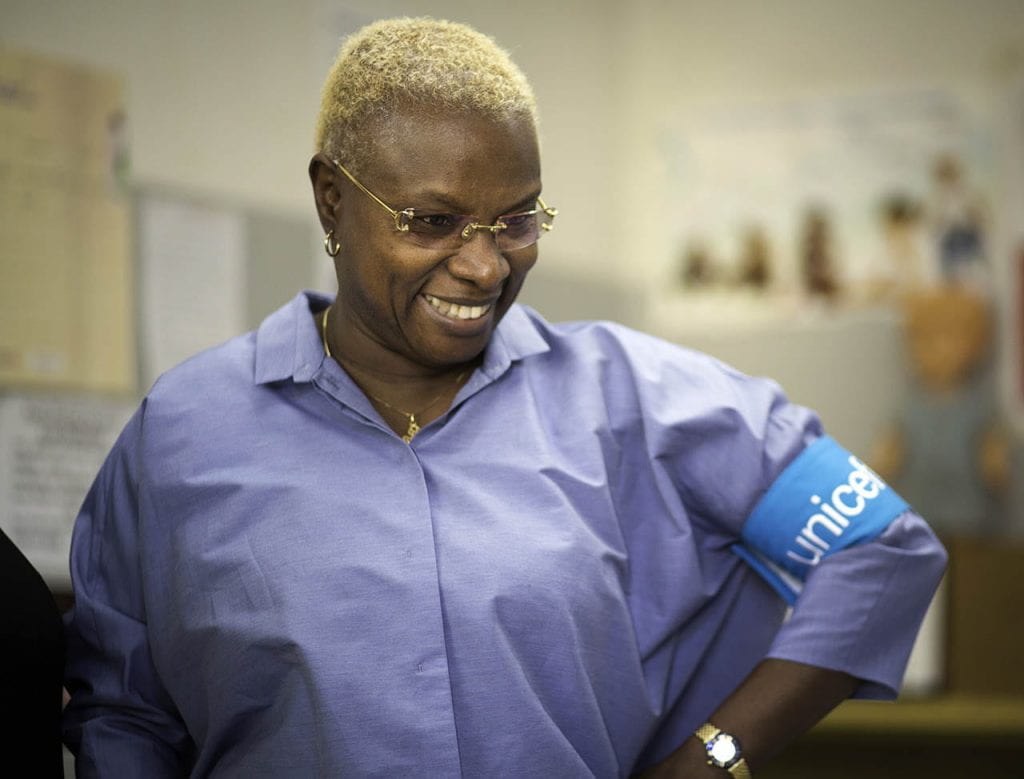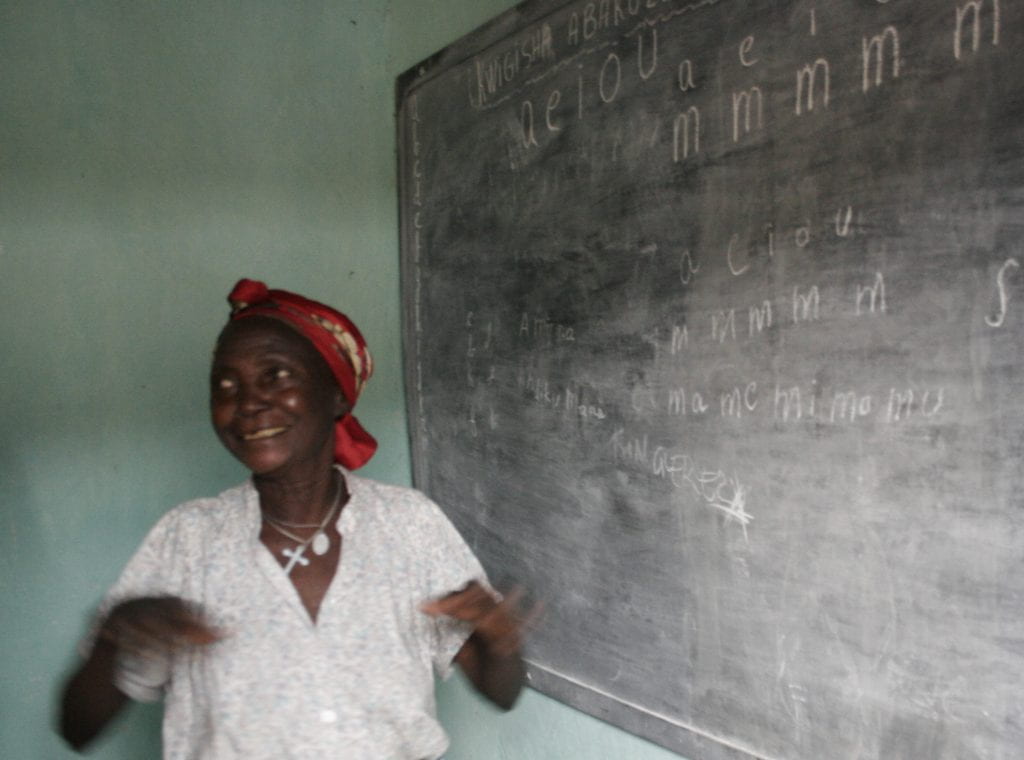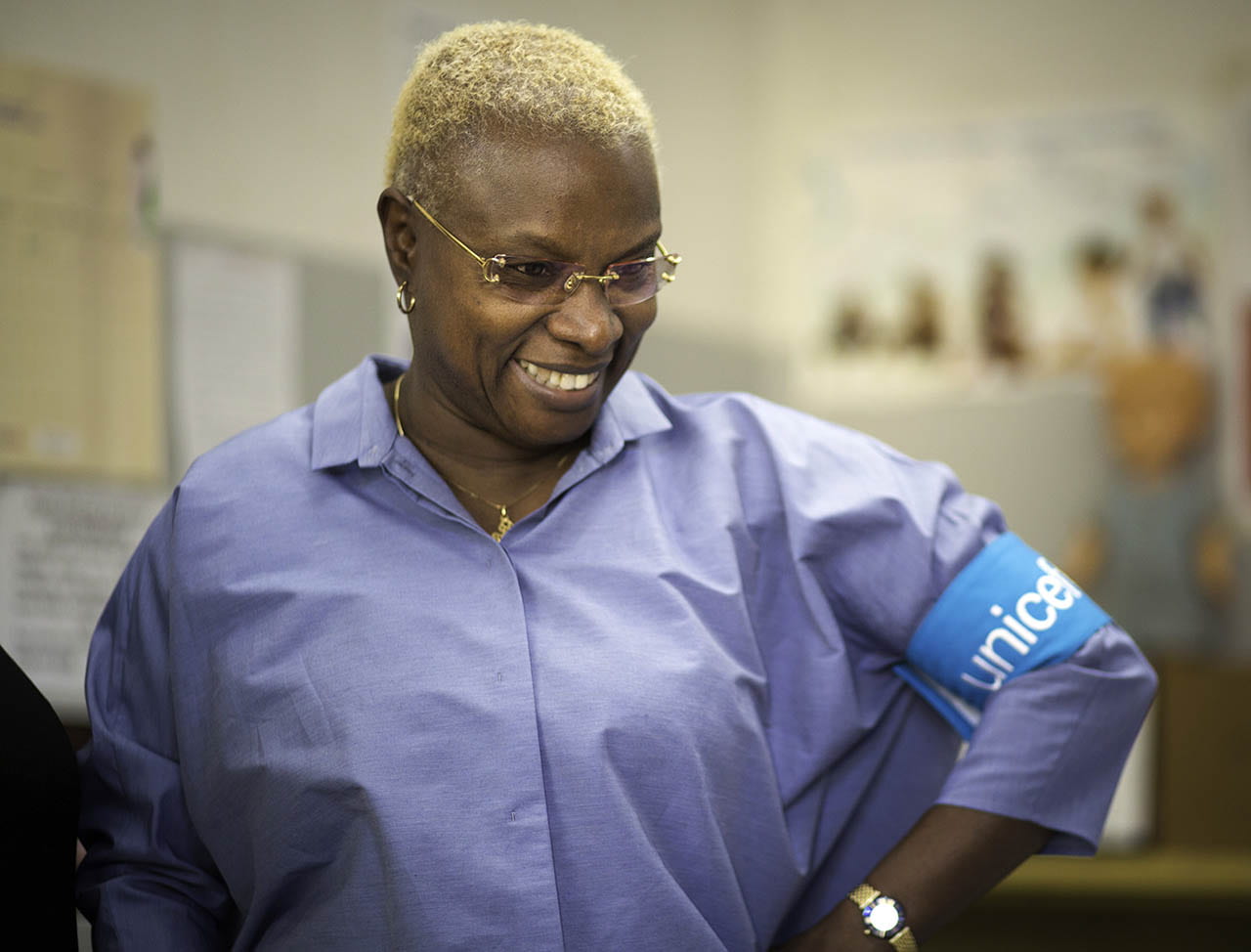On March 22, 2018, Grammy-award winning singer and human rights activist Angélique Kidjo will be speaking at the University of Alabama at Birmingham about the importance of education for girls and boys. Angélique is from Benin, a small country in West Africa; the IHR has previously published on challenges facing Benin on our blog, which may be found here. One pressing human rights concern facing the Beninese people is access to education. The Batonga Foundation, Angélique Kidjo’s non-profit organization states, in Benin, 3 out of 4 girls do not make it do middle school, and 1 in 3 girls get married before the age of 18. Per UNESCO, in 2015, only 48.93% of students enrolled in secondary education were female compared to 68.52% of enrolled male students in Benin. Lastly, in 2012, the female literacy rate for female population aged 15 – 24 in Benin was only 40.94%.

As Angélique explained to CNN, unlike the majority of girls in Benin, she grew up in a household that emphasized the critical necessity of education. Growing up with ten siblings and one paycheck, Angélique used to sing for extra money for her family. She eventually wanted to drop out of school and work as a full-time singer, however, her father insisted females should be educated and made dropping out of school non-negotiable.
“My education has empowered me so much: it gave me the confidence not only to sing but also to speak on CNN or BBC and to meet world leaders to lobby on the behalf of the women of Africa.”
– Angélique Kidjo, ONE
Primary and secondary education for all children is now accepted as a universal basic need and human right. Data from the World Bank highlights the sobering relationship between education and development. The poorest countries in the world have national secondary education enrollment rates of less than 35%, along with low levels of tertiary enrollment of less than 15% (Sachs 254). Higher education institutions are necessary “to ensure that there are qualified teachers, sufficient numbers of technical workers, and a generation of young people trained in public policy and sustainable development (Sachs 255).”
In many communities, cultural roles and expectations create substantial gender gaps in the division of household responsibilities, economic opportunities such as employment, access to job-training skills, and education levels. The burden of gender inequality has detrimental and disproportionate impacts on the economic security, poverty levels, health, nutrition and environmental safety of women worldwide. These can also be prevented. Education provides mothers and children the opportunity to break the cycle of poverty and fuel social mobility, which here refers to the change in social class and socioeconomic status of individuals or families.
The Ripple Effect of Education on Social Mobility
- Educating women equates to higher economic productivity. Studies determine lower female enrollment rates in school is associated with lower GDP per capita. Specifically, UNICEF states in 2011 that one percentage point increase in female education increases the average level of GDP by 0.37 percentage points. As a result of basic education and skills, women are able to work and contribute to the economic growth and productivity of their country. Likewise, education plays a key role in endogenous growth – economic growth based on new technological breakthroughs, such as the internet and advancements in computer science using research and development (Sachs 271). The current revolution of new information and communication technology (ICT) is exceedingly dependent on trained individuals with advanced degrees in their fields of study. Research and development is deeply concentrated in high income countries due the complex interplay of successful management systems ranging from universities to high tech business companies, and even national laboratories (Sachs 273). The fundamental anchor for the success of these institutions is strong systems of higher education in sciences, public policy and engineering.
At the local level, educated women are able to work and provide for their families. UNICEF states every added year of primary school enhances girls’ ensuing wages by 10 – 20% and another 15-25% for every additional year of secondary school. Employment opportunities provides financial stability, and thus averts families from falling into poverty due to the parents’ ability to invest in their children’s human capital. Human capital is here defined as the “collective skills, knowledge, or other intangible assets of individuals that can be used to create economic value for the individuals, their employers, or their community.”

- Educating women translates to reduced child mortality. The number one indicator for the survival of a child under the age of five is the mother’s education level. Education establishes health behaviors and customs that have a constructive impact on an individual’s health. Specifically,“Educated mothers have a greater ability to identify healthcare services for treating their child’s illnesses; higher receptivity to new health-related information; familiarity with modern medical culture; access to financial resources and health insurance; better decision-making power; and increased self-worth and self-confidence.” (Bado 2016)
Reduced child mortality breaks the intergenerational cycle of poverty of the future generation. First, healthy children and less likely to miss school and more likely to complete their education. Higher levels of education are associated with better socio-economic status. Second, healthy children grow up to be active members of society, and contribute to the productivity of their national economy. Third, families with healthy children can invest money into other areas of development and human capital such as education rather than health services.
- Parental educational level is an important predictor of children’s educational outcomes. Educating women translates to increased chances of education for the next generation regardless of one’s social environment or income. Educated parents understand the critical relationship between education and social mobility, increasing the likelihood of putting their children through school. Likewise, educated parents have the financial means to help put their children through school. Lastly, parent education levels are associated with the parents providing children a more stimulating cognitive, emotional physical environment in the household. Motivating home environments have a positive influence on a child’s achievements and aspirations (Gunn 518-540).
“The association of family income and parent’s education with children’s academic achievement was mediated by the home environment. The mediation effect was stronger for maternal education than for family income.”
Educating girls and women is the most cost-effective way to reduce poverty and improve quality of life. Education enables both national and local social return that continue to affect quality of life years after formal education is completed.
Female education is an imperative stakeholder in the development of women all over the world. Angélique Kidjo uses her voice and social influence to advocate for female education all over Africa. In 2002, Angélique Kidjo’s advocacy journey flourished as she became a UNICEF Goodwill Ambassador for education. As a Goodwill Ambassador, Angélique has campaigned for education on behalf of UNICEF by attending high level meetings, speaking and performing at public events, and granting media interviews. Her advocacy work continues to bring attention to these issues. Along with her work with UNICEF, Angélique founded a non-profit, the Batonga Foundation. Angélique created the word batonga which means “get off my back, I can be whoever I want to be.” According to Angélique, she created the word during her Junior year of high school to protect herself against male bullies at her school. The word confused the boys, who eventually left her alone. The Batonga foundation focuses on the education of women and girls throughout Africa. Their services focus on providing scholarships, book materials, latrines across schools, shoes for walking to schools, and access to girls clubs.
The IHR is proud to host Angélique Kidjo. On Thursday, March 22nd at 6:00 p.m., Angélique will present an educational lecture at the UAB Alys Stephens Center. This event is free and open to the public.
Additionally, on Friday, March 23rd at 8:00 p.m., Angélique Kidjo give a musical performance at the UAB Alys Stephens Center. Registration for her performance can be found at the UAB Institute for Human Rights website.
References:
Sachs, Jeffery. (2015). Enviornmental Sustainability and Peace. New York: Colombia University Press
Greg, D., Brooks-Gunn, J. (1997). The Consequences of Growing Up Poor. New York: Russell Sage Foundation

